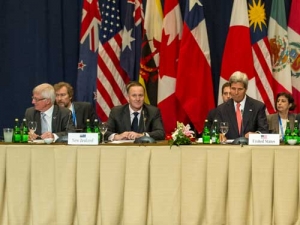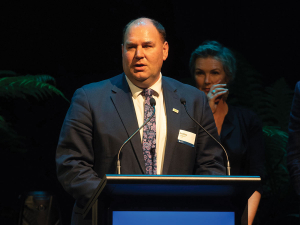They say good things take time. However, the time taken by Trans Pacific Partnership (TPP) negotiators is testing the patience of stakeholders; doubt is setting in among the 12 countries involved.
A number of deadlines have come and gone; even the so-called ‘end game’ has been with us quite a while. Yet an agreement still seems far, far away.
The recent move by the US House of Representatives to deny President Obama the power to fast-track negotiations has delivered a blow to the faltering TPP talks.
Even the New Zealand Government, once optimistic about TPP despite the passing deadlines, is in doubt.
Back in 2011 TPP leaders committed themselves to concluding a “high quality, ambitious and comprehensive” agreement. It’s now not clear whether the TPP will live up to this vision.
Most commentators agree that a number of issues continue to hamper the conclusion of the negotiation. One of them is dairy, among the most highly protected product groups globally. For example, Japan and Canada have import tariffs on dairy products exceeding 200%.
The US is also reluctant to open its borders to dairy products from NZ. TPP outcomes must be ambitious, comprehensive and commercially meaningful for dairy and other products; anything less will be unacceptable to NZ dairy farmers.
Free trade agreements are complicated; all countries need to give a little in order to achieve the greater good. But substance must shape the negotiating agenda.
TPP will be completed once negotiators have developed consensus positions to put to ministers. Right now this seems far, far away. With the US turning its attention to presidential election primaries, a two-year delay seems inevitable.
The lack of progress means some TPP economies have already departed from consensus on the main issues.
Australia and Japan, for example, concluded a bilateral FTA that sets a low benchmark for liberalisation and the US and Japan may well have agreed – though we don’t know for sure – that some tariffs will remain.
New Zealanders negotiate trade agreements because we seek advantage as a trading nation. Our domestic market is small and our access to local capital is limited, so we need to look externally for growth and development.
And international markets have not always been kind to NZ. We learned here a generation ago that protection is the worst enemy of innovation and competitiveness. That same penny is beginning to drop in Canada, the US and Japan. Yet their politicians are unwilling to play ball, leaving TPP’s future up in the air.











